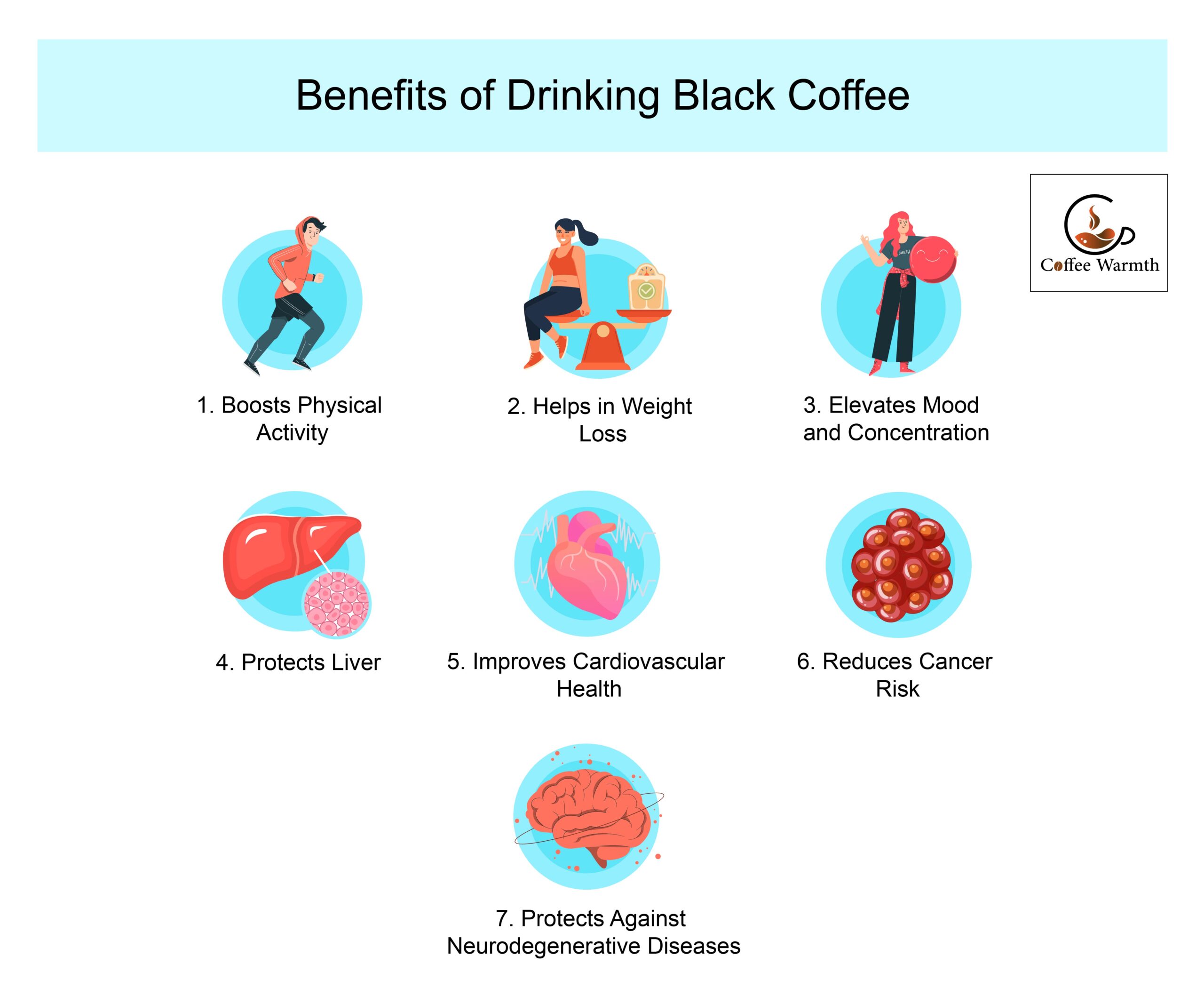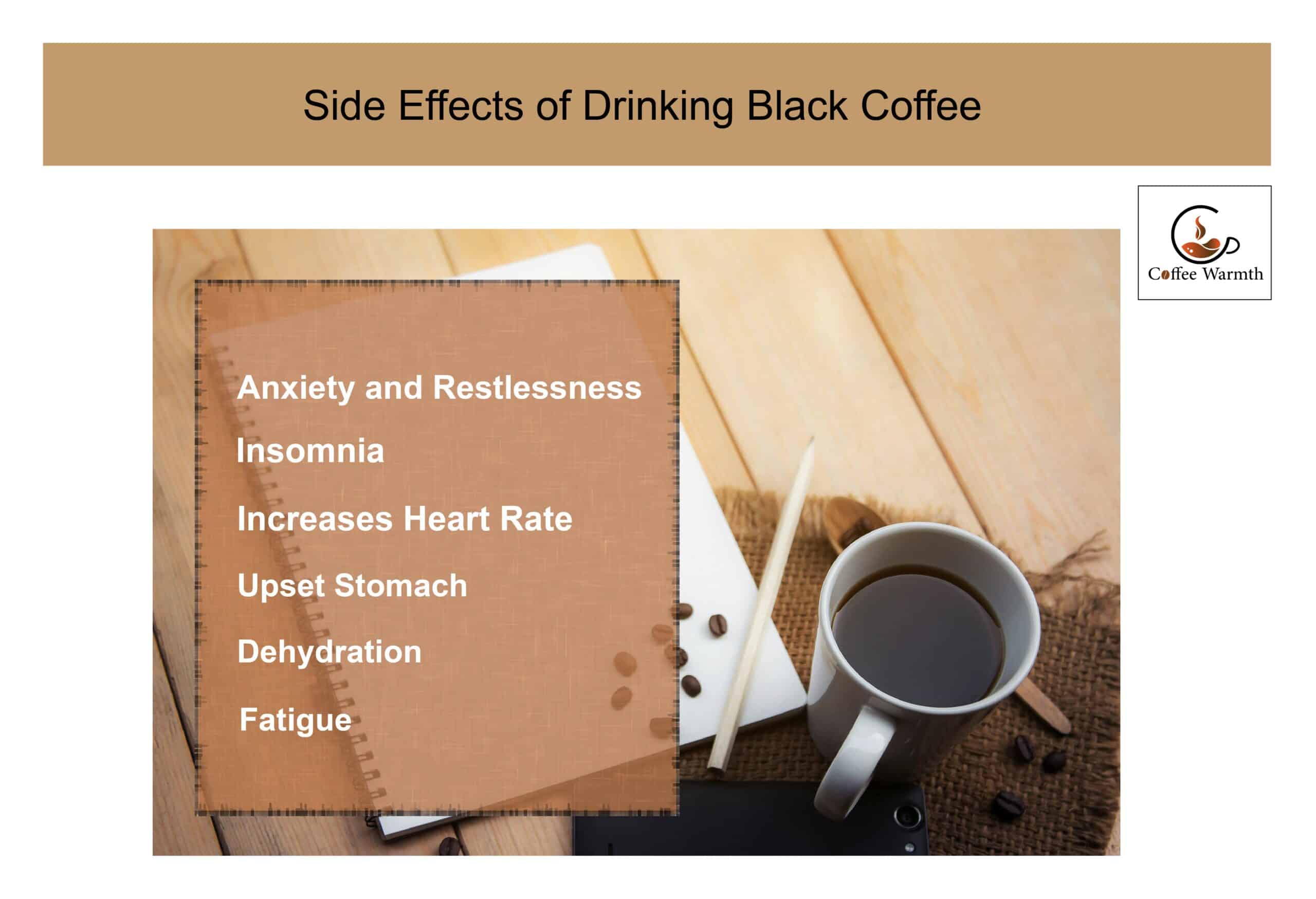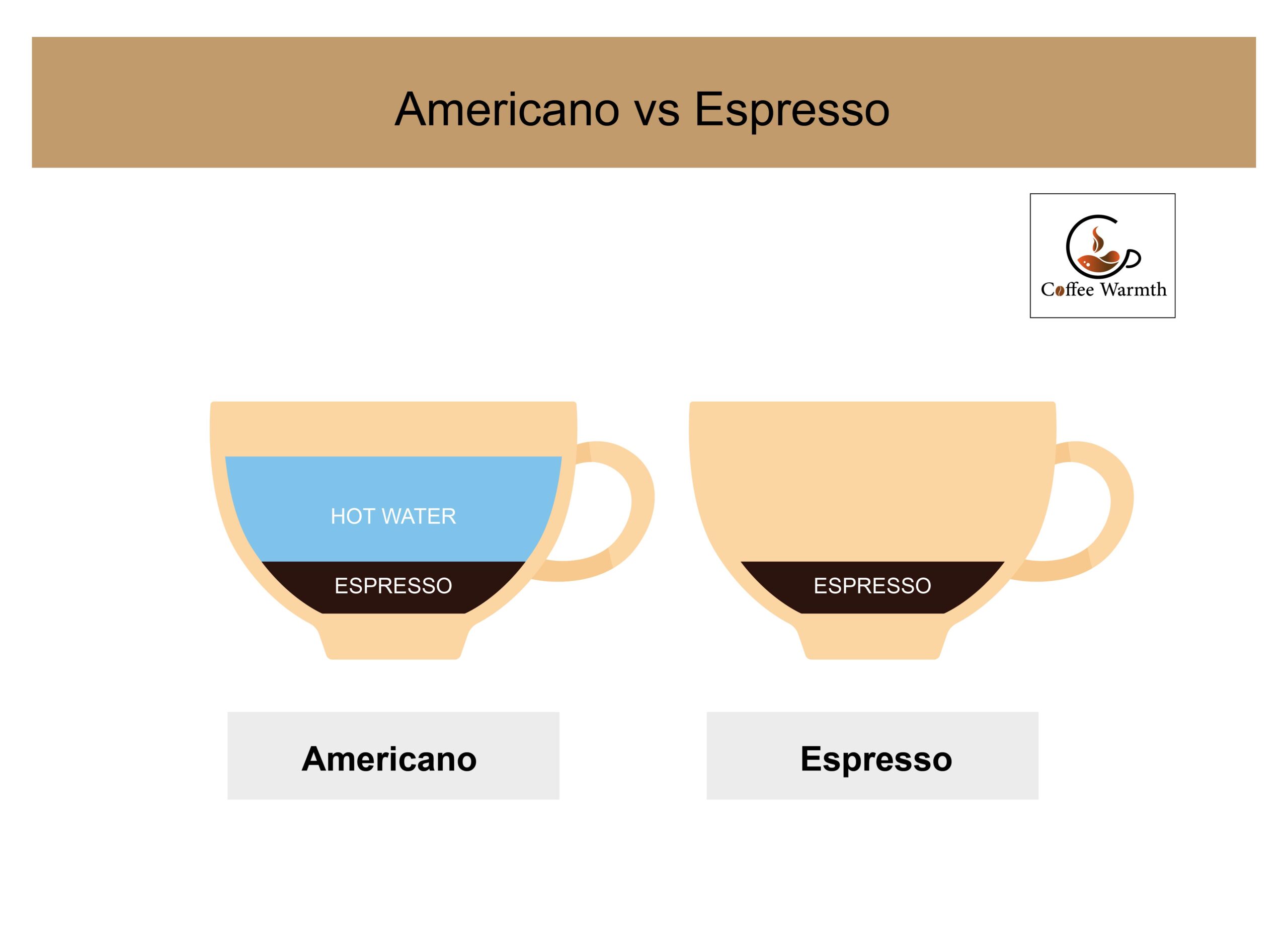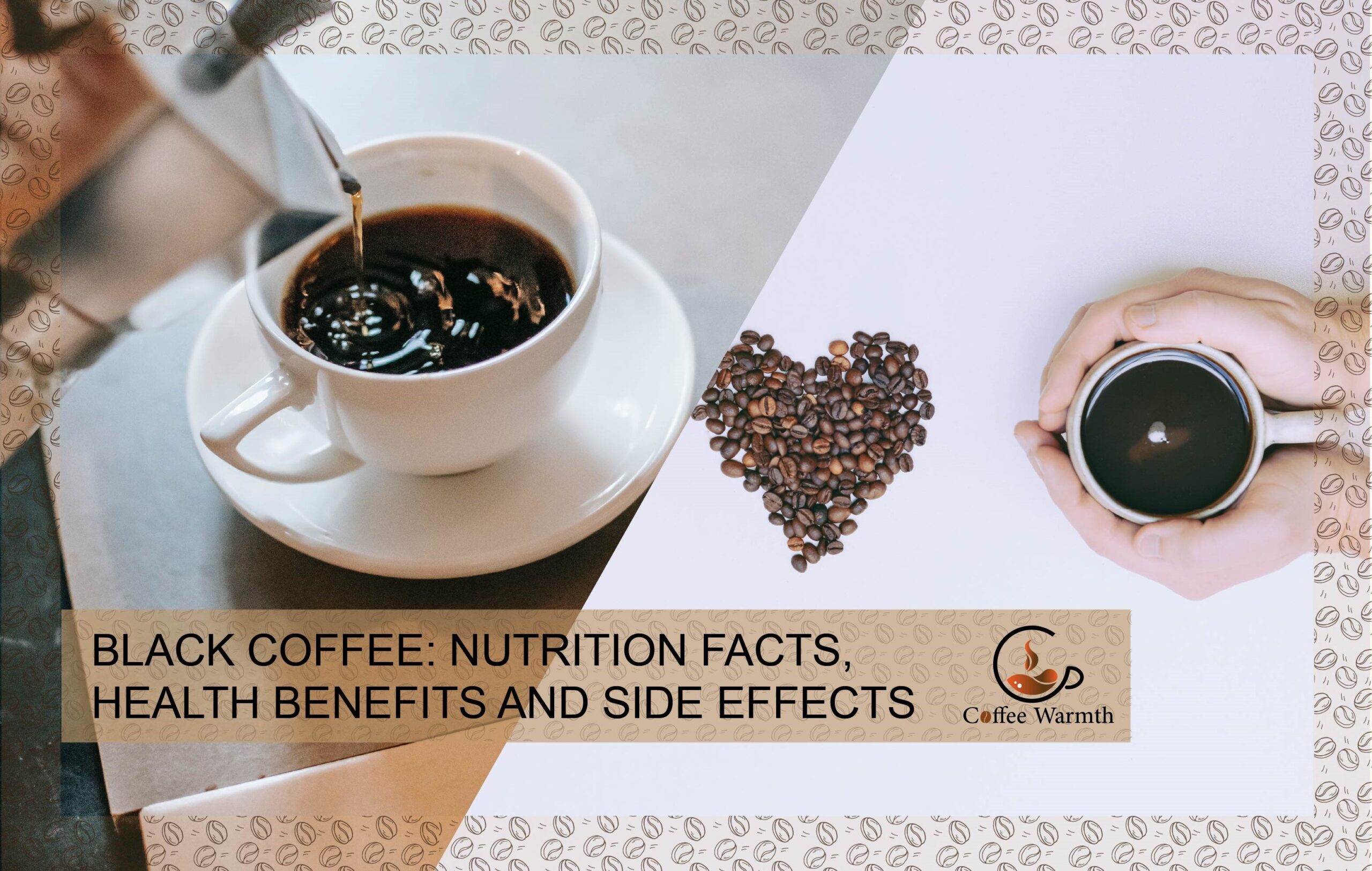Black coffee is a type of drinking coffee taken without milk, sugar, or cream. It is a beverage that is simply brewed by pouring water on coffee grounds which are allowed to bloom. The rest of the water is then poured over the coffee grounds and allowed to percolate.
Black coffee has a slightly bitter taste and low acidity compared to regular coffee with additives. The flavor profile of black coffee depends largely on the coffee beans, brewing process, and extraction time.
Most people like to drink their coffee black due to its taste profile and health benefits. However, others may use it as a base for many other coffee drinks like cappuccinos, lattes, americanos, and macchiatos.
Black coffee is popular as a low-calorie beverage, used by coffee drinkers daily in regions including Europe like in Italy and Spain, Middle Eastern countries like Turkey and Saudi Arabia, and also in the United States and Canada.
Black coffee is used for its health benefits including boosted physical activity, increased weight loss, elevated mood and concentration, improved cardiovascular health, reduced cancer risk, and protection against liver and neurodegenerative diseases. On the harmful side, drinking more than 4-5 cups of black coffee in a day can cause anxiety and restlessness, insomnia, increased heart rate, upset stomach, and dehydration, if taken in excess.
What is black coffee?
Black coffee is a coffee that is brewed with nothing added – no sugar, cream or milk. It is a caffeinated beverage made from coffee beans. The coffee beans are soaked in water, which release flavor, color, caffeine, and nutrients into the water. It’s the purest form of coffee that allows you to experience the natural flavor of coffee beans, its acidity and bitterness. Black coffee has a wide range of flavors, different levels of acidity and sweetness depending upon the roast level, brewing method, and bean origin.
Black coffee also serves as a base for many coffee drinks like cappuccino, latte, americanos, macchiatos, etc. You can add milk, cream, sugar, and other additives in black coffee to reduce its bitterness and enjoy it according to your taste.
What is the nutritional value of black coffee?
The nutritional value of a cup of black coffee of 8 ounces or 237 grams is the following.
| Quantity | Daily Value | |
| Calories | 2.4 | 0% |
| Total FatSaturated Fat Trans Fat Polyunsaturated Fat Monounsaturated Fat Cholesterol | 0.1g0g0g0g0g0mg | 0%0% |
| Sodium | 4.7mg | 0% |
| Total Carbohydrates Dietary Fiber Sugars | 0g0g0g | 0%0% |
| Protein | 0.3g | 0% |
| Vitamin D | 0mcg | 0% |
| Calcium | 4.7mg | 0% |
| Iron | 0mg | 0% |
| Potassium | 116.1mg | 2% |
| Riboflavin | 0.196mg | 14% |
| Niacin | 1.05mg | 3% |
| Thiamin | 0.0345g | 3% |
| Caffeine | 94.8mg | 0% |
How many calories are in black coffee?
There are 2 calories in a single cup (8 fl.oz. or 237 g) of black coffee brewed from coffee grounds while a single espresso shot (1-ounce or 30 mL) has 1 calorie according to the United States Department of Agriculture (USDA). A regular cup of black coffee has 98% water and 2% extracted coffee which explains its low calorie count. If you use decaffeinated coffee beans, the calorie count will be 3.5 in an 8 fl.oz. cup of black coffee.
What are the benefits of drinking black coffee?
The benefits of drinking black coffee are similar to benefits of regular coffee as backed by evidence from University of Buffalo, Nutrients, Translational Psychiatry, Journal of Psychopharmacology, Liver International, International Journal of Cancer, Journal of the American College of Cardiology, European Journal of Cancer Prevention, and Nutrition and Cancer Journal are mentioned below. These benefits are also further illustrated in the diagram below.

- Boosts Physical Activity
Drinking black coffee one hour before an activity can boost the results of your physical activity. Caffeine and coffee consumption improves physical activity in both athletes and sedentary adults as found by Patrick Schrader and his colleagues from University of Buffalo.
- Helps in Weight Loss
Drinking black coffee helps in weight loss due to its low calorie count, increase in metabolic rate, and suppression of appetite. Black coffee is rich in chlorogenic acids which improves insulin sensitivity, slows down glucose production, and reduces the formation of fat cells. Coffee abundant in chlorogenic acid reduces abdominal fat in overweight adults, according to a study published in ‘Nutrients’.
- Elevates Mood and Concentration
Caffeine in black coffee increases dopamine receptors concentration in the brain which enhances mood, according to study in Translational Psychiatry. It also enhances sustained attention and alertness according to a study in the Journal of Psychopharmacology
- Protects Liver
Black coffee protects chronic diseases like liver cirrhosis and hepatocellular carcinoma. Caffeine consumption reduces the risk of cirrhosis and hepatocellular carcinoma progression in chronic liver disease patients, according to studies published in the Liver International and International Journal of Cancer.
- Improves Cardiovascular Health
Black coffee has a beneficial effect on cardiovascular health. It reduces the risk of cardiovascular outcomes like coronary heart disease, congestive heart failure, arrhythmias, and stroke, according to a study published in the Journal of the American College of Cardiology.
- Reduces Cancer Risk
Drinking black coffee routinely can reduce the risk of different types of cancer. Long-term coffee intake reduces risk of hepatocellular, endometrial, oral, colorectal, prostate, and breast cancer, as stated in articles published in the European Journal of Cancer Prevention and Nutrition and Cancer Journal.
- Protects Against Neurodegenerative Diseases
Drinking black coffee regularly can protect you against neurodegenerative diseases. Raffaella Colombo and Adele Papetti from University of Pavia, Italy states that caffeine in black coffee has neuroprotective effects against dementia, Alzhiemer’s, and Parkinson’s disease.
What are the side effects of drinking black coffee?
The side effects of drinking too much black coffee are the following as backed by studies from Psychological Medicine, European Journal of Gastroenterology & Hepatology, Journal of British Nutrition Foundation, Journal of Clinical Sleep Medicine, Medicinal and Aromatic Plants Research Journal, and Clinical Nutrition.
The figure below lists the side effects of drinking black coffee.

1. Black coffee causes anxiety and restlessness
Drinking black coffee more than the FDA’s recommendation can cause or trigger anxiety and restlessness by release of high amounts of adrenaline. A study in the Journal ‘Psychological Medicine’ shows drinking more than 6 cups of caffeinated coffee a day increases anxiety and risk of psychiatric disorders. Caffeine sensitive people may experience anxiety symptoms even at low intake.
2. Drinking black coffee can cause insomnia
Drinking too much black coffee or drinking a cup at night can cause insomnia symptoms like delay in time to fall asleep and reduced sleeping hours. Drinking more than 4 cups of black coffee 3-6 hours prior to bedtime disrupts sleep patterns and decreases sleep efficiency in healthy individuals, as found in studies published in the Journal of Clinical Sleep Medicine and Medicinal and Aromatic Plants Research Journal.
3. Drinking black coffee can increase heart rate
Drinking too much black coffee raises adrenaline levels which responds to threats by increasing heart rate, blood pressure, breathing rate, and initiating other physiological responses. The extra stimulatory effects of caffeine on heart rate may disrupt the normal heart rhythm. Atrial fibrillations, a disruption of normal heart rhythm, can occur in young adults consuming too much caffeine, as concluded in a study published in Clinical Nutrition.
4. Drinking black coffee can upset the stomach
Caffeine in black coffee increases colonic motility which moves food towards the rectum and makes you poop. So, if you have a sensitive stomach, too much black coffee may lead to loose stools and diarrhea.
A study in the European Journal of Gastroenterology & Hepatology found that caffeinated coffee stimulates the colon 60% stronger than water.
5. Drinking black coffee can dehydrate you
Caffeine in black coffee is a diuretic which may increase bathroom trips and make you lose lots of fluid causing dehydration. Although dehydration is not common, if you’ve an overactive bladder and low daily water intake, you may experience coffee dehydration.
A study in a Journal of British Nutrition Foundation found that only consuming more than 400 mg caffeine can produce dehydration symptoms.
6. Drinking black coffee can cause fatigue
Drinking too much black coffee can cause rebound fatigue as soon as the caffeine effects wear off. Caffeine exerts its effects by blocking adenosine receptors which leads to an accumulation of adenosine in the brain. As soon as caffeine effects wear off, adenosine rapidly binds to its receptors causing fatigue and sleep.
How many cups of black coffee can you drink in a day?
You can drink 4 cups or 32 fl.oz. of black coffee or 400 mg caffeine in a day without facing any adverse effects, according to the recommendations of the FDA. One cup of black coffee contains 95 mg caffeine, as shown by data in the nutritionix. So, 4 cups of black coffee a day is within the limit of the FDA for most healthy adults as illustrated in the image below.

The amount of safe black coffee varies for kids, teens, pregnant females, depressive and insomniac individuals.
Is Espresso a black coffee?
Yes, espresso is a type of black coffee but black coffee is not espresso until it is brewed by passing hot water at high pressure through fine coffee grounds.
Espresso is a strong black coffee containing 60 mg caffeine in one ounce compared to 95 mg caffeine in 8 ounces of regular black coffee. Espresso has a bitter but sweet and smooth taste while black coffee tastes bitter and slightly nutty and sweet.
Is Americano a black coffee?
Yes, Americano is a type of black coffee as it is served without any milk, cream, or sugar. Americano contains one or two shots of espresso and poured over hot water. Hot water dilutes espresso making Americano taste like regular coffee.
The figure shown draws a comparison between the concentration americano and espresso cup of coffee.

Americano contains 105 mg caffeine in a 8-ounce cup whereas black coffee has 95 mg caffeine in 8 ounces. Americano boasts a smooth and well rounded flavor but black coffee has a more stronger and bitter taste.
Is black coffee healthier than coffee with milk or cream?
Yes, black coffee is healthier than coffee with milk or cream. Black coffee is low in calories (2 calories in an 8-ounce cup) as compared to all other coffee drinks which means it will prevent weight gain. Coffee drinks with milk and cream have high calorie-count which makes it less healthy.
Furthermore, black coffee may show more pronounced caffeine-related effects than coffee with milk or cream because milk and cream reduces the effectiveness of caffeine. An 8-ounce black coffee cup of 95 mg caffeine may cause better attention and focus.
How to reduce bitterness of black coffee?
The following are some ways to reduce bitterness of black coffee.
- Adding a tiny pinch of salt reduces coffee solubility and suppresses the bitter taste receptors.
- Reducing coffee to water ratio reduces the quantity of coffee which gives you a less bitter cup of black coffee.
- Using coarse ground coffee increases the work of water to extract flavor and helps make a less bitter cup of black coffee.
- Lessen the extraction time so less flavor is extracted from the coffee beans decreasing the bitter taste of black coffee.
- Use clean, filtered water as bad quality water can add a sharp bitter flavor to black coffee.
The graphic lists some of the ways to reduce the bitterness of black coffee.

